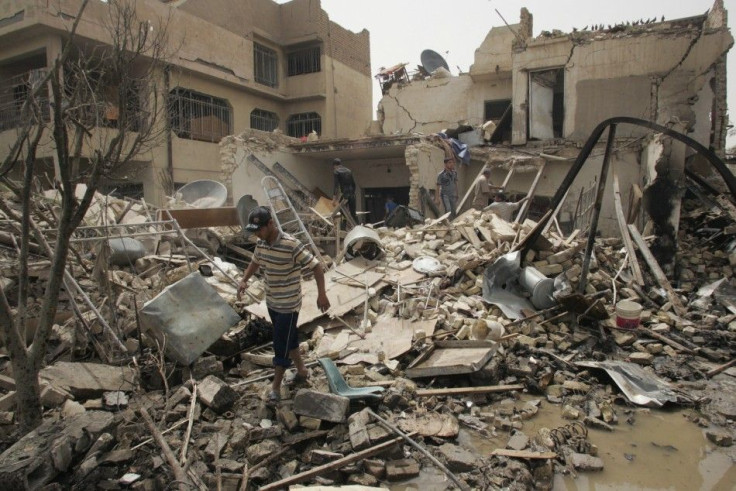Bombing Waves Kills Three Dozen In Iraq

Iraq was struck by a wave of deadly bombings on Thursday, killing at least 37 people -- including 22 civilians, 12 security forces and three militiamen -- and injuring 150 more.
The coordinated attacks, 12 in all, occurred in six provinces and rocked the cities of Kirkuk, Samarra, Baqouba, Dibis and Taji, while three car bombs, two roadside bombs and a suicide bomber struck Shiite neighborhoods in Baghdad, according to Reuters.
Additionally, mortar fire was reported in the northern cities of Beiji and Tikrit, but there were no injuries.
No group has claimed responsibility for the attacks.
Government and police officials were the targets of many of the 30 total bombings. Insurgents detonated bombs outside the homes of high-ranking police and army officials, including police First Lieutenant Mohammed al-Tamimi in Baquba, who was killed. Health Minister Majid Hamed Amin's convoy was specifically targeted in the capital and Brigadier General Taha Salaheddin was the target of a car bomb in Kirkuk.
I was trying to stop traffic to let a police patrol pass ... A car bomb exploded, I fell on the ground and police took me to the hospital, a wounded policeman in Kirkuk, where eight people were killed, told Reuters.
Although attacks occur in Iraq on a daily basis, Thursday's bombings were the first significant attacks in nearly a month and the deadliest since a series of 30 explosions set by al Qaeda affiliates killed 52 people across the country in March.
Shiite areas are often the targets of insurgent actions, as are government buildings, and Iraqi officials say that extremists use the attacks to try to show that security has deteriorated in the wake of the withdrawal of American troops at the end of last year; The Iraqi government insists this isn't true.
Our forces are capable of confronting such challenges and this will not affect the improvement in the security situation or our security plans, Colonel Dhiya al-Wakeel, a spokesman for the Baghdad operations command, said on Iraqiya TV.
Shiite Muslims are the majority in Iraq but the country's Sunni insurgency is reportedly linked to al Qaeda. According to the New York Times, violence in Iraq has remained relatively steady over the past three years.
© Copyright IBTimes 2025. All rights reserved.





















